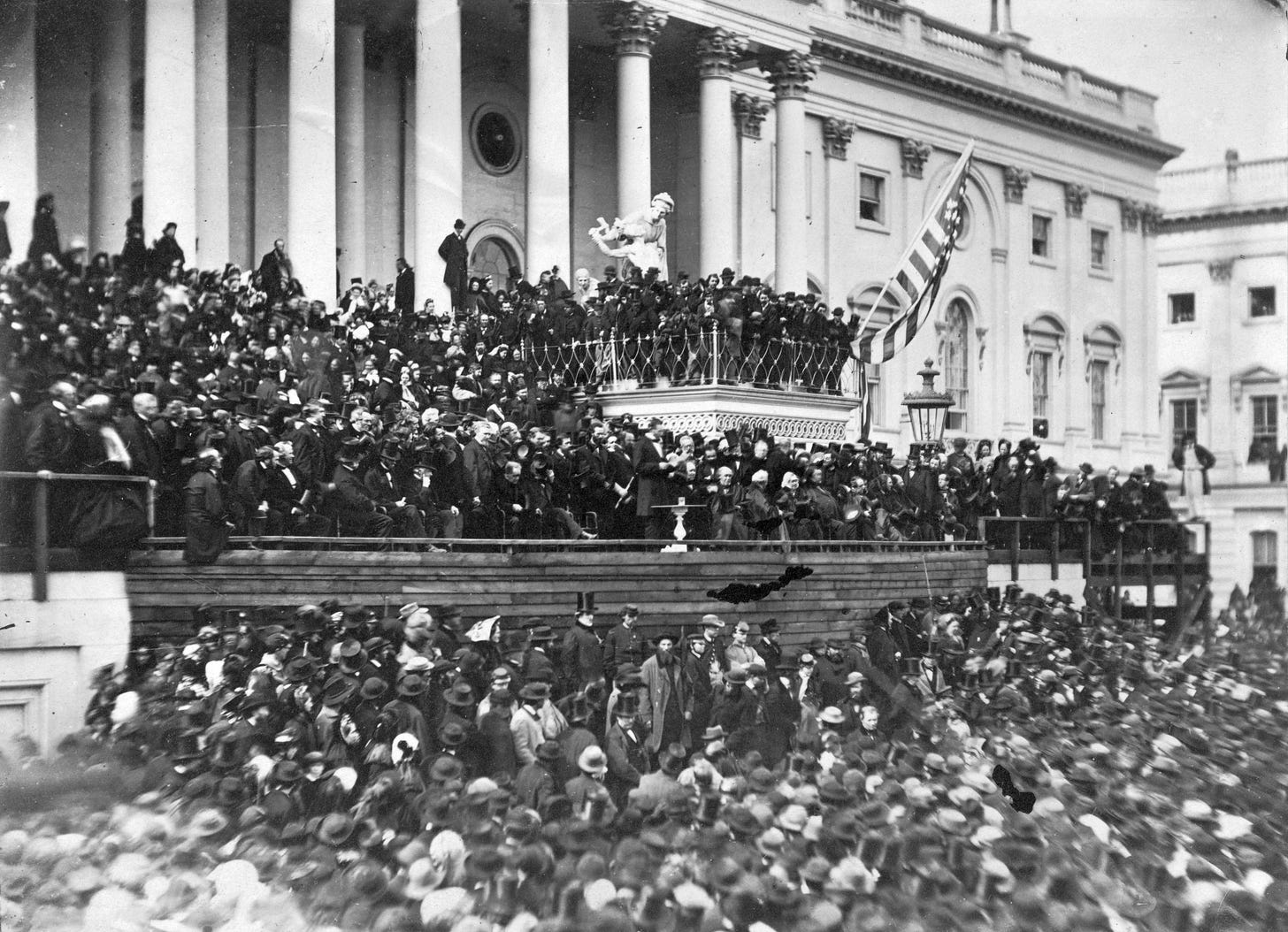
Hi there, readers!
Last week’s recap, sent early Sunday morning, had been written and scheduled before former president Donald Trump narrowly survived a harrowing assassination attempt. Combined with the increasing possibility of Joe Biden dropping out of the race, U.S. presidential politics hasn’t seen this level of drama in a very long time — perhaps all the way back to the Civil War era.
I picked and scheduled Team of Rivals last fall, in hopes of providing 2024 with a sense of the good that can come from politics. While it’s doing some of that — especially in the figure of Lincoln — it’s actually serving to remind me just how unpredictable and head-scratching our political environment can be. History is so much closer to the present than it often seems.
In light of all this, Team of Rivals feels more relevant than ever. I’d love to hear how you thought about all of it as you read and absorbed the news this week.
This week, I have a shorter recap and we’ll conclude the book next week with some closing thoughts and ideas. Here’s what stood out on my end:
It’s incredible that the Republican party wanted to replace Lincoln in the summer of 1864. Their hope was to call for an open convention and get someone more successful and electable onto the docket. Ring a bell?
In light of his poor odds, Lincoln had his advisers sign a secret memo stating that they would all cooperate with whoever was elected after him. The fate of the country was more important than whining about wins and losses. That’d be refreshing in today’s environment, wouldn’ it?
With each passing week, I’ve been more and more impressed by Lincoln’s confidence. To be president requires an enormous ego, and Lincoln was no different. But his version of it just comes across as less arrogant than most: “I honestly believe that I can better serve the nation in its need and peril than any new man could possibly do. I want to finish the job of putting down the rebellion, and restoring peace and prosperity to the country.”
It wasn’t anything Lincoln did that increased the party’s confidence in him. Rather, it was Sherman’s cable with “the stunning news that Atlanta had fallen” that set up Lincoln for his election victory. It is very often the case that the hinges of fate swing on unforeseen events rather than anything in any individual’s control.
After he was elected, Lincoln went the magnanimous route instead of castigating anyone: “[he] urged a more sympathetic understanding of the nation’s alienated citizens in the South. There were no unbridgeable differences.” Read that last line again.
Finally, I’m not sure there have ever been more beautiful words penned by a president than Lincoln’s second inaugural address:
“With malice toward none; with charity for all; with firmness in the right, as God gives us to see the right, let us strive on to finish the work we are in; to bind up the nation’s wounds; to care for him who shal have borne the battle, and for his widow, and his ophan—to do all which may achieve and cherish a just, and a lasting peace, among ourselves, and with all nations.”
There’s plenty I’m skipping this week: the 13th amendment, more about Grant, the return of George McClellan . . . there’s just so much intrigue from this era of American history!
What stood out to you? I’d love to hear.




I have been interested in the progression of Lincoln’s views and slavery. He started by being okay with slavery in existing states as long as it didn’t spread to new states to being totally committed to the 13 amendment. He was a smart and wise man and he held to his convictions, yet at the same time he learned and listened and changed when he believed it was the right thing to do.
I was really struck by Blair’s quote to Ben Butler, “If we allow the military to invade the rights of of private property on any other grounds than those recognized by civilized warfare, there will soon cease to be any security whatever for the rights of civilians in either side.” We are seeing this outcome in our world today.
Assassination attempt and parallels to the current political climate aside, I was happy to see Chase depart, but was impressed by how he came out to campaign for Lincoln. Another thing that stood out for me this week was his ability to not hold a grudge. “A man has not time to spend half his life in quarrels. If any man ceases to attack me, I never remember the past against him.” Current day politicians would be wise to follow suit.